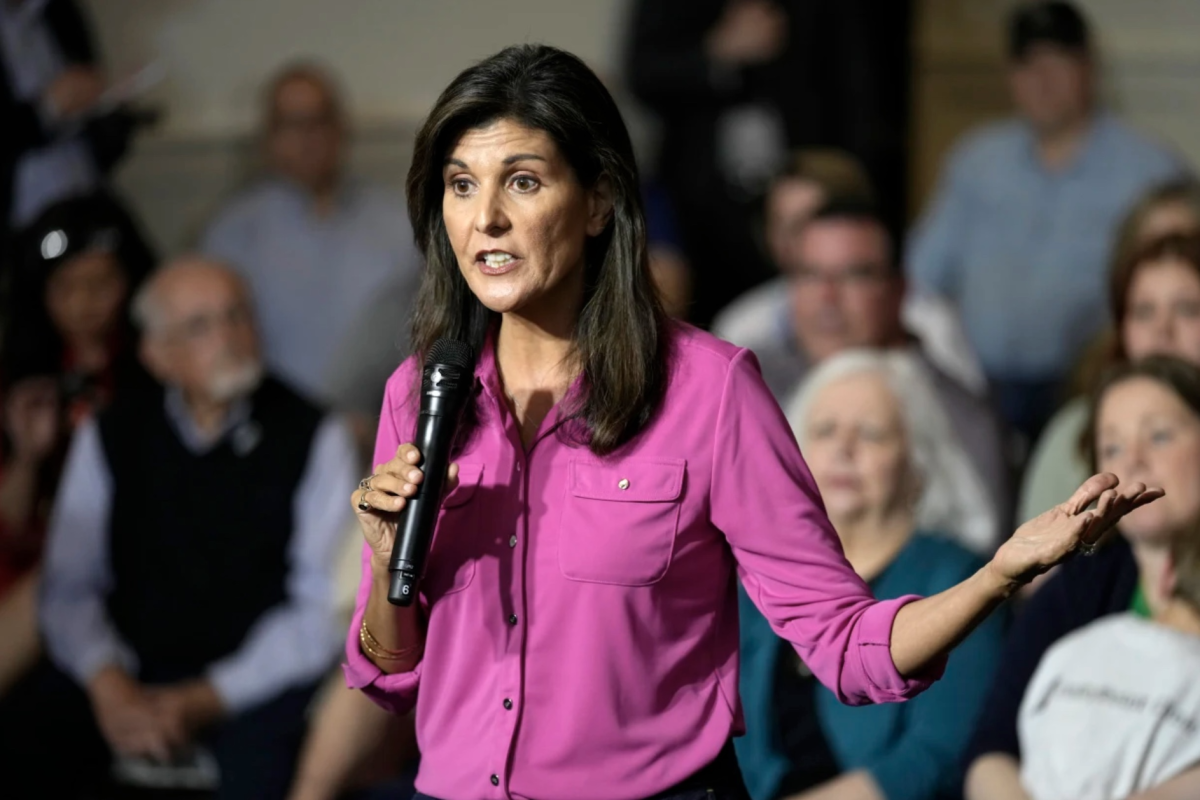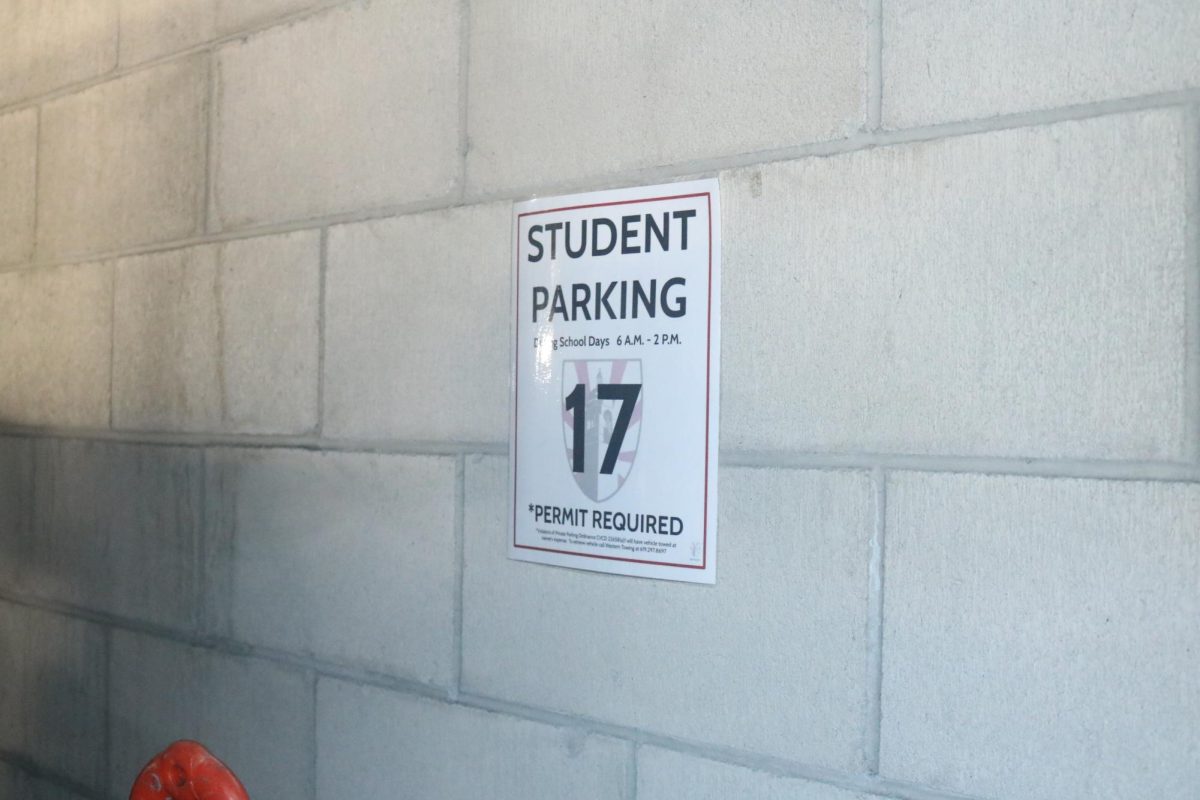It’s 2024. Women occupy the political stage — just like men. Women hold positions of power — just like men. But are they behaving, strategizing, and coming across to the public like men?
The United States has certainly started to see more female candidates make their way into the political world in recent years. Nikki Haley was the most popular Republican candidate after Donald Trump in the 2024 Republican primaries. In 2016, Hillary Clinton became the closest our country has ever seen to having a female president. And at this very moment, Kamala Harris is serving as the United State’s first ever female vice-president.
But despite these women’s successes — as well as their differing views and demographic support — they are all still bound by one thing: their struggle to portray their female identities in a way that allows them to achieve political success.
As women in politics campaign and vye for support, they are often aware of the double bind — where women must be able to show “both warmth and competence,” according to a Michigan Ford School research article. They must come across as more traditionally feminine, but also as strong candidates not controlled by emotion.
This double bind is reflected in Americans’ views of female politicians. In a 2023 Pew Research Center poll, 58% of responders said “showing emotions hurts a woman’s chances of getting elected” (compared to 33% for men), and 48% “see having young children at home as a disadvantage for women candidates” (compared to only 7% for men). But a 2018 Pew Research Center poll also found that 77% of US adults think female politicians should have kids, with specifically 51% saying it should be “before entering politics.”
This poses an impossible question for women. How can they both have kids and not have kids to be seen as competent?
“Having to change your appearance, your behavior, your mannerisms, the words you use, the way you speak to make yourself palatable to politics is a big thing for women, whether that means dialing up or down your femininity based on the situation you’re in,” as FEM Club member Ariadne Georgiou (‘26) explained.
Many Americans have also observed women being forced to curate their identities to get support. According to the same 2023 Pew Research Center poll, “62% of Americans say the media focuses too much on the physical appearance of women running for high elected office.”
For Nikki Haley, this curation and balancing act manifests itself in showing that she is a strong, capable candidate, while still referencing her traditional role as a mother and as a woman. “There’s nothing wrong with Iron Ladies [referring to former British Prime Minister Margaret Thatcher] being feminine… There’s nothing wrong with Iron Ladies being great wives and great moms,” she argued at a 2022 event about her book, If You Want Something Done.
By characterizing herself by her feminine strength, she balances between using her female identity — which makes her stand out — while trying not to “repel the largely white and graying base of conservative voters she needs to court in order to win the nomination,” as a December 2023 New York Times article put it.
Though Republicans tend to form a whiter, older, and more Christian audience (who generally have more traditional views compared to Democrats), Haley’s struggles with how to represent herself as a female politician transcend political parties. In Hillary Clinton’s 2016 campaign, for example, she characterized herself by her perspective as a grandmother, and her wisdom as a result. This was partly to “help win over more traditional voters and, crucially, help inoculate Clinton…against ageist tropes that are more likely to be slung against a female candidate,” according to a 2015 Guardian article.
Back in her 2008 primary campaign, Clinton didn’t often reference her female identity but also did not fully ignore it. In her concession speech of the Democratic spot to Barack Obama, she claimed she was “proud to be running as a woman,” while still making it clear she was running due to her capabilities as a president, not her identity. Still, she said, “I am a woman, and like millions of women, I know there are still barriers and biases out there, often unconscious.”
There was also unnecessary focus on Clinton’s appearance throughout her campaigns. In 2012, for example, a photo of her at a news conference in Bangladesh without heavy makeup was heavily scrutinized. A 2012 Washington Post article characterized her as a “sassy geek” “schoolgirl” in the photo. A Daily Mail article called her “tired and withdrawn.”
Vice President Kamala Harris has faced similar challenges as Clinton and Haley. A member of Trump’s advisory board called her an “insufferable lying b*tch.” She was also criticized for things like her body language and demeanor during her vice-presidential debate. Frank Luntz, a Republican pollster, said his undecided voter focus group didn’t like her “condescending reactions.” After Joe Biden announced Harris as his running mate, Donald Trump called her “extraordinarily nasty” and “so angry.”
In addition to gender stereotypes, the characterization of women as angry and aggressive is a common stereotype of Black women. As a woman of color, the stereotypes and criticism Harris faces are coming at her from two parts of her identity, making them more complex and even more pervasive.
Harris’s struggles certainly have differed from Haley and Clinton as a Black woman. But these three women have all been subject to sexist scrutiny — which makes becoming a successful politician that much more difficult. As US Government Teacher Ms. Katy Rees said, women have to “grapple” with how the use their identity. “On the one hand, [you] certainly bring a different perspective. [You] can add so much to the table, not just because [you’re] female, but because of these different experiences that [you] have,” she explained. She added that “at the same time, too often when women highlight the distinct perspective they can bring, they are accused of playing it up and are dismissed.” Ariadne agreed, saying “Your entire existence has to be curated much more to make yourself appealing to the public.”
Ms. Rees mentioned that she has also noticed a similar trend at a local level. “I have a sister in law who…was on the city council in her town, then mayor, and has worked at state politics,” she explained. In “a heavily male-dominated” field, she has observed different attitudes and standards towards her sister-in-law due to her gender.
Ultimately, even as women climb the ranks in politics more and more — both locally and nationally — they have not yet been liberated from the sexist expectations society places on them.













